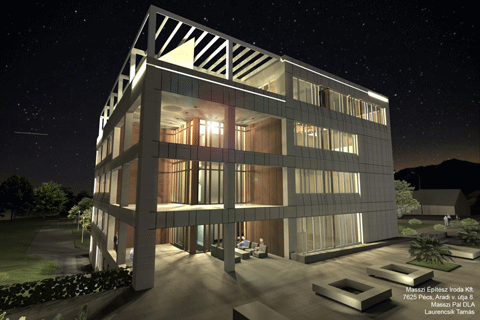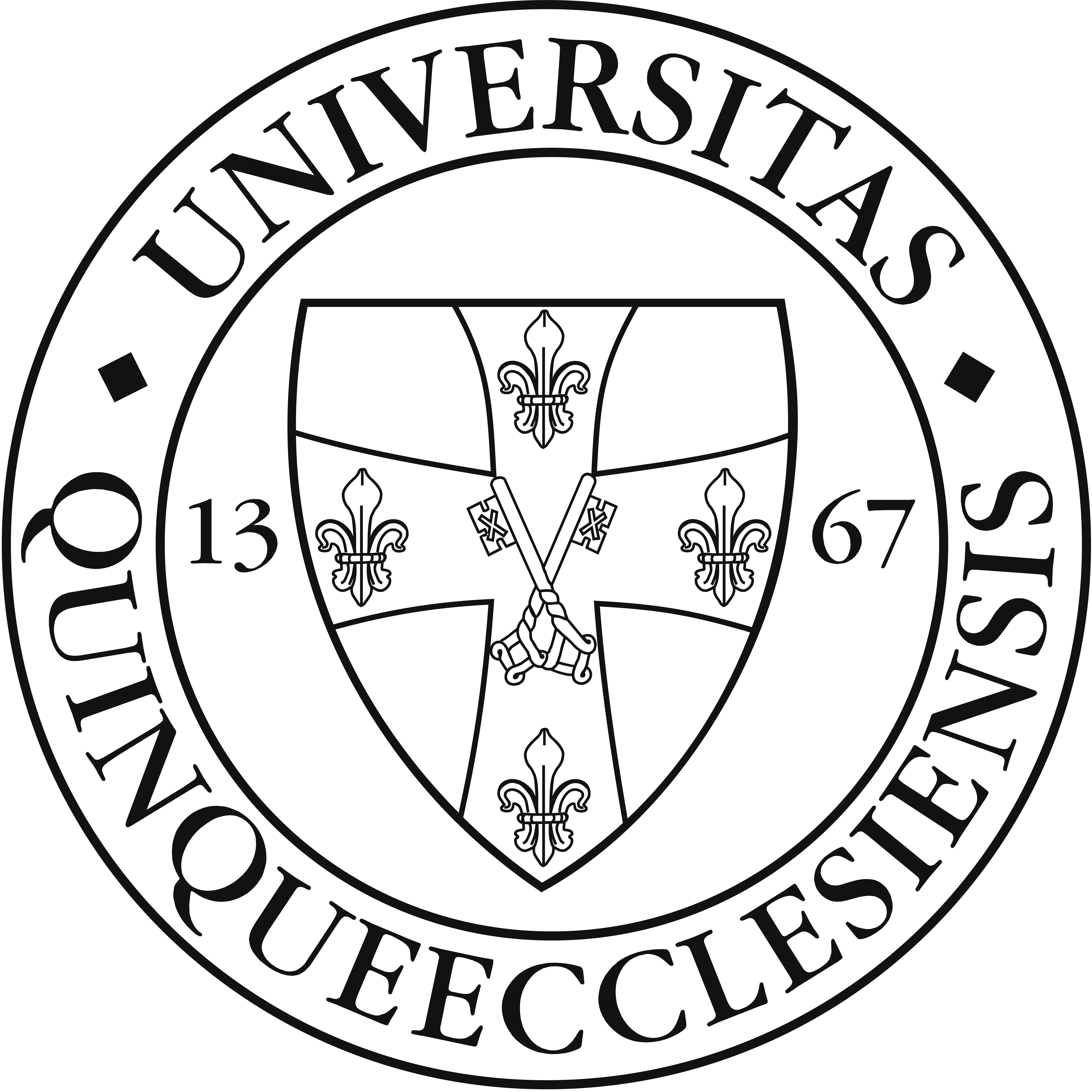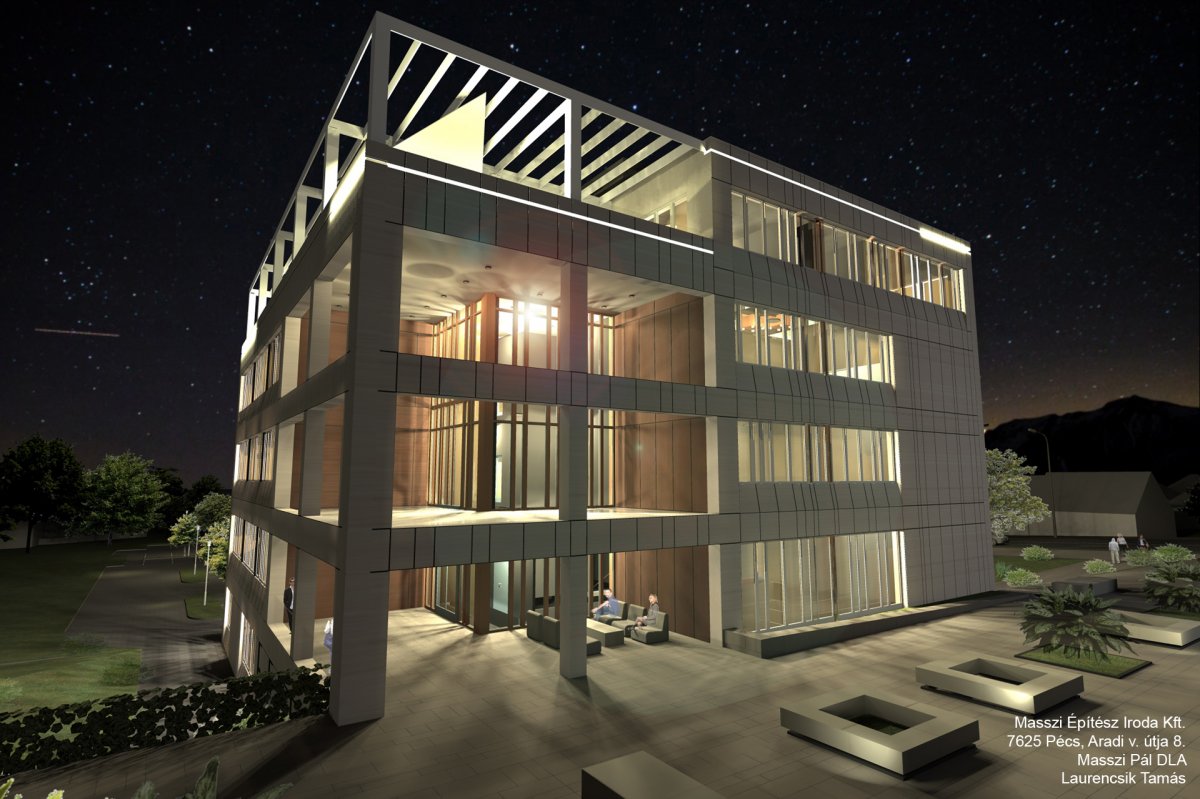University of Pécs: Central Europe’s Most Modern Medical and Engineering Science Centre

Sponsored by

Sponsored by

University of Pécs: Central Europe’s Most Modern Medical and Engineering Science Centre
The University of Pécs is characterised by dynamic development utilising cutting-edge technologies to tackle challenges of the 21st century. Its state-of-the-art infrastructure nurtures innovative ideas in a beautiful city in southern Hungary.
In 2020, the Medical School reformulated its strategic plan to establish and support future development. It features four main conceptual pillars that are interconnected: Learning Culture, Infrastructure, Science and Innovation, and Well-Being. This strategy offers a radically new philosophy for learning and teaching to shape the university’s future together, involving all Medical School employees and incorporating their views into decision making procedures. The primary objective is to have a faculty-based strategy that is clear and accepted by all stakeholders based on shared goals and vision, creating a culture of commitment among all Medical School staff.
The expansion of the Medical Campus
The Medical School of the University of Pécsis one of the top medical schools in Hungary. Doctors and dentists who graduate from the Hungarian, English, and German programs are equipped with diplomas that are highly respected in many countries around the world. There is a wealth of opportunities internationally for alumni of the UP Medical School. The Faculty aspires to become one of the world’s top 200 . In order to achieve this goal, the school strives to not only modernize its facilities to create ideal conditions for learning and teaching, but to offer an environment that is modern, community-oriented, and inspiring for students and faculty.
One important outcome of this plan is a 12,000-square-metre building designed for lectures and theoretical courses This structure was opened in September 2021, and it is equipped with smart technology to meet the high academic and clinical standards of students, instructors, and researchers.

In the new wing, four large lecture halls and 34 seminar rooms provide the most advanced teaching and learning environment with the latest state-of-the-art medical technology for training. The “CORE facility” is located in the centre of the building, which includes laboratories that provide a unified infrastructure for advanced research in various disciplines. In addition to face-to-face teaching, the building enables education supported by info-communication tools (ICT).
As part of the extensive campus reconstruction, the original building and its surroundings will also undergo interior and exterior renovation in the coming years. The old main building will be equipped with the same audio-visual technology available in the new building, the student and community areas will be renovated, and the library will also be expanded.
The dentistry program in Pécs will also be improved. A new high-tech dental centre is being built near the medical campus, which students will be able to start using during the 2022/2023 academic year.

The MediSkillsLab and the Medical Simulation Education Centre at the University of Pécs Medical School have become national leaders in the practical training of doctors, healthcare professionals, and military and police personnel over the past decade. Its facilities, which include high fidelity (HI-FI) simulators, are very advanced both nationally and internationally, using VR (virtual reality) technologies to model complex simulations, from basic tasks to complex surgical procedures.
Beyond the infrastructural rebirth
The development of the University of Pécs Medical School includes more than the modernisation of its facilities. Its long-term strategy fosters collaborative thinking and a radically new philosophy for learning, teaching, scientific interpretation, and human relationships. The Medical School is keeping up with changes in higher education and taking on a leadership role in these processes.
The have embraced a culture of learning at the Medical School. This paradigm shift in learning culture includes the integration of new learning methodologies to elevate student experience and develop community. An important objective is to modernise training activities with innovations that make education more practice-centered and experience-based. A key issue is the integration of AR and VR technologies, the development of digital learning, and the implementation of the latest technological innovations in everyday teaching practice. The overarching goal is to achieve a modern, up-to-date and advanced level of theoretical and clinical medical education.
Improving the well-being and community of the Medical School’s staff and students, building relationships between groups, and maintaining institutional and community trust are all important priorities along with improving educational programmes and campus infrastructure.
Cohesion, creativity, and communities are crucial components of the Medical School, and these are all important for the university to continue to be successful in the future.
Future technology and training at the University of Pécs
In addition to quality education, quality research is also important for 21st century knowledge acquisition. Since 2016, the University of Pécs has successfully launched several interdisciplinary projects with grants. A comprehensive curriculum development programme was launched at the Medical School, the Medical Simulation Education Centre was expanded with new equipment and units (VR lab, cadaver operating theatre, matrix rooms), and several laboratories supporting research and education (Biomechanical Lab, Bio-mechatronics Lab) were created. The 3D Printing and Visualisation Centre was also established, which will play a crucial role in education and research with its advanced 3D printers and specialised research and measurement equipment. The aim is to revolutionise the region’s development through 3D projects in many fields, including medical care, high-tech applications, R+D, and innovation.
A new Master’s program in Biomedical Engineering was also launched, which was designed for training professionals to solve technical problems using interdisciplinary medical engineering and apply this knowledge in clinical practice.
Persistent Progress
Several significant upgrades took place in other departments at the University of Pécs. We modernised the Faculty of Health Sciences buildings to provide an innovative and up-to-date environment for learning while maintaining the architectural heritage of historic downtown Pécs.
The Damjanich Dormitory, located next to the newly renovated International Studies Centre (ISC), has been modernized specifically for international students. ISC was an integral part of the university’s internationalisation process, and it continues to play a key role in recruiting international students to study at the University of Pécs. ISC has grown in numbers and developed a reputation inside and outside Hungary. With the new ISC building, its potential for growth will continue. ISC organises foundational language courses for international students. This programme, which initially had only 30 to 40 students, has now grown to several hundred students annually.
